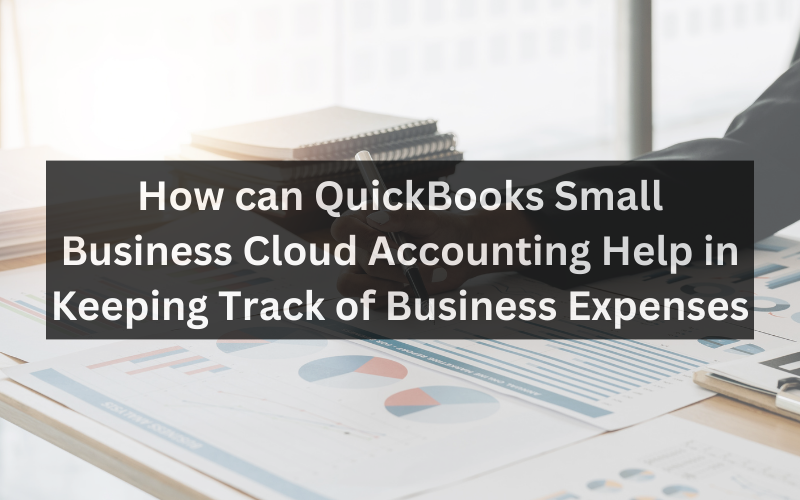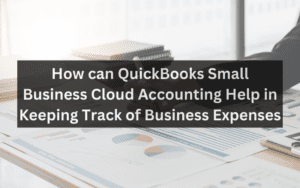
Small business owners face numerous challenges when managing their accounting, and tracking expenses is one of the most crucial tasks. Without accurate expense tracking, businesses can easily overspend, miss out on tax deductions, and struggle to maintain a clear accounting overview. This article delves into how QuickBooks Small Business Cloud Accounting addresses these challenges and transforms expense tracking into a seamless process.
The Importance of Expense Tracking
Proper expense tracking gives businesses insights into where their money is being spent. This information is pivotal for budgeting, identifying cost-saving opportunities, and making informed accounting decisions. QuickBooks Small Business Cloud Accounting recognizes the significance of expense tracking and offers various features tailored to streamline this process.
QuickBooks Small Business Cloud Accounting: An Overview
QuickBooks is a renowned accounting software that has established itself as an industry leader. Its cloud-based version, specifically designed for small businesses, offers a range of tools that simplify accounting management. With its user-friendly interface and comprehensive features, QuickBooks makes expense tracking accessible even to those without a finance background.
Features for Expense Tracking
Automated Expense Capture
QuickBooks employs advanced technology automate expense capture. Users can easily snap pictures of receipts using their mobile devices, and the software automatically extracts relevant information such as date, amount, and vendor. This eliminates manual data entry and reduces the risk of errors.
Categorization and Tagging
Expense tracking becomes more meaningful when expenses are categorized and tagged appropriately. QuickBooks allows users to organize the costs into customizable categories, clearly separating where money is spent. Tagging expenses with relevant labels further enhance reporting accuracy.
Real-Time Updates
Waiting for the end of the month to review expenses is a thing of the past. QuickBooks provides real-time cost updates, giving business owners immediate insights into their accounting health. This feature enables prompt decision-making and prevents overspending.
Streamlining Receipt Management
Gone are the days of sifting through piles of paper receipts. QuickBooks streamlines receipt management by allowing users to digitize and store receipts within the platform. This reduces clutter and ensures that important documents are easily accessible whenever needed.
Creating Customized Expense Reports
Different stakeholders require different types of accounting information. QuickBooks facilitates the creation of customized expense reports tailored to suit the needs of various parties, including investors, partners, and tax authorities. This flexibility enhances transparency and collaboration.
Integrating Bank and Credit Card Transactions
Manual data entry from bank and credit card statements can be time-consuming and error-prone. QuickBooks simplifies this process by seamlessly integrating with bank accounts and credit cards. Transactions are automatically imported, reducing the risk of data entry errors.
Enhancing Tax Preparation
During tax season, accurate expense records are invaluable. QuickBooks helps businesses prepare for tax filing by providing a detailed breakdown of deductible expenses. This simplifies tax calculations and ensures that companies maximize their deductions.
Collaborative Expense Tracking
In many businesses, expense tracking is a collaborative effort. QuickBooks enables multiple users to access and update expense information simultaneously. This feature fosters teamwork and ensures that expense data is always up-to-date.
Mobile Accessibility
Modern business owners are often on the go. QuickBooks recognizes this and offers a mobile app that allows users to track expenses, capture receipts, and view accounting reports from their smartphones or tablets. This level of accessibility empowers businesses to stay on top of their accounting wherever they are.
Security and Data Privacy
accounting data is sensitive, and QuickBooks prioritizes security and data privacy. The platform employs encryption and safeguards to protect users’ accounting information from unauthorized access or breaches.
Cost Savings and Return on Investment (ROI)
While adopting new software comes with a cost, QuickBooks is a cost-effective solution. The time saved on manual expense tracking, reduced errors, and enhanced accounting insights contribute to a substantial return on investment over time.

